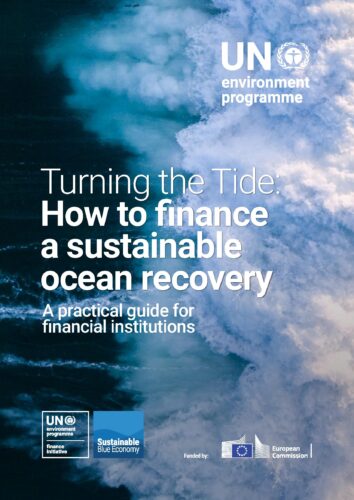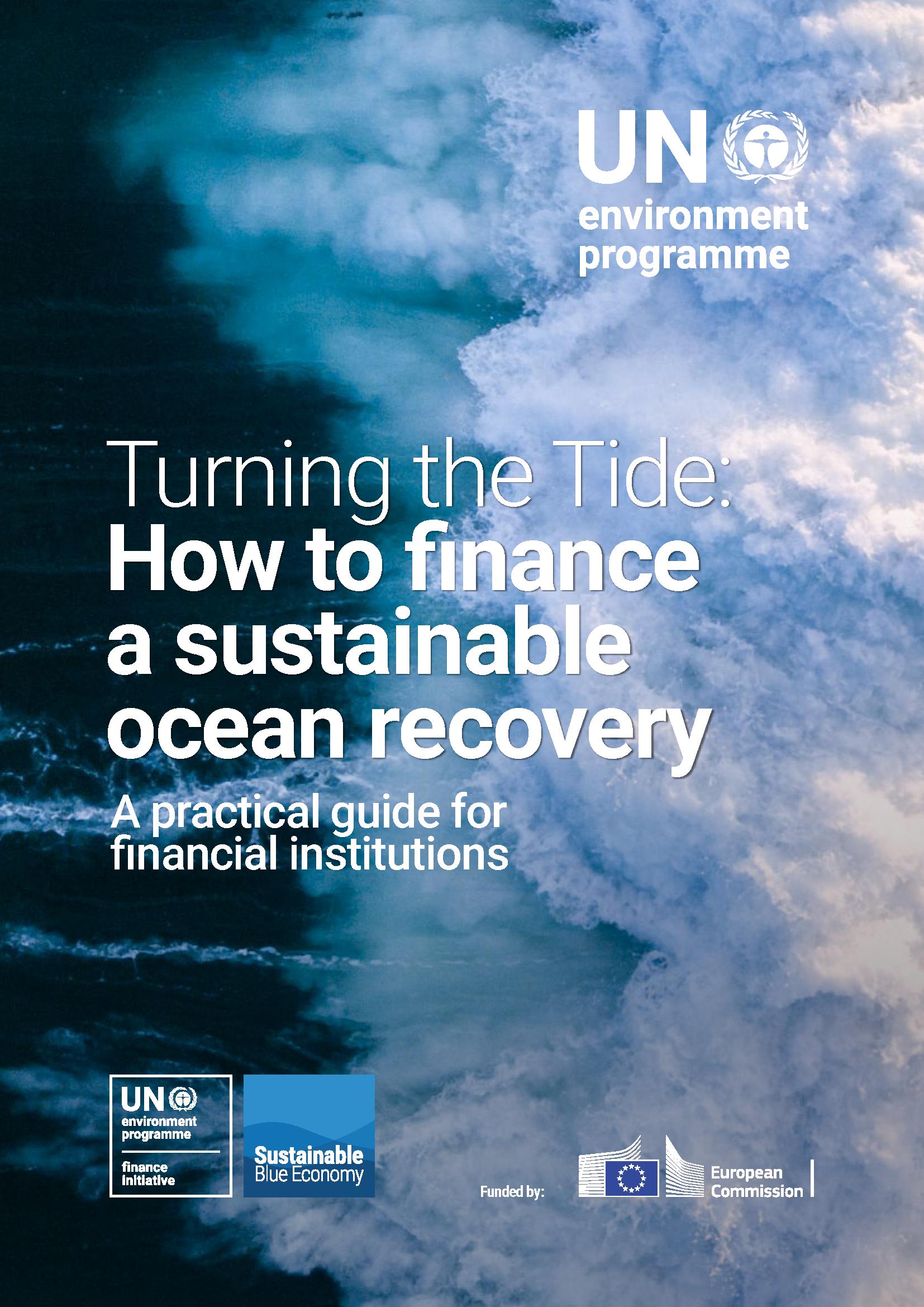The ocean covers the majority of our planet’s surface, holding 97% of all water and 80% of all life forms. However, ocean health is under threat, faced with the triple crises of pollution, nature loss and climate change, leaving industries, businesses and livelihoods exposed.
With existing financing still largely directed towards unsustainable sectors and activities, it is critical that all sectors of the blue economy are rapidly transitioned towards sustainable pathways. Banks, insurers and investors have a major role to play in financing this transition to a sustainable blue economy, helping to rebuild ocean prosperity and restore biodiversity to the ocean. Through their lending, underwriting and investment activities, as well as their client relationships, financial institutions have a major impact on ocean health and hold the power to accelerate and mainstream the sustainable transformation of ocean-linked industries.
 A new guidance provides a market-first practical toolkit for financial institutions to pivot their activities towards financing a sustainable blue economy. It outlines how to avoid and mitigate environmental and social risks and impacts, as well as highlighting opportunities,
A new guidance provides a market-first practical toolkit for financial institutions to pivot their activities towards financing a sustainable blue economy. It outlines how to avoid and mitigate environmental and social risks and impacts, as well as highlighting opportunities,
when providing capital to companies or projects within the blue economy.
The guidance builds on the foundation of the Sustainable Blue Economy Finance Principles (‘the
Principles’), the keystone for financing activities in the blue economy. The Sustainable Blue Economy Finance Principles define a sustainable blue economy as one that “provides social and economic benefits for current and future generations; restores, protects and maintains diverse, productive and resilient ecosystems; and is based on clean technologies, renewable energy and circular material flows”. Wide use of the Sustainable Blue Economy Finance Principles will ensure ocean finance is delivered with sustainability at its core, so that profitability goes hand-in-hand with environmental and social stewardship.
More Information at http://bit.ly/3kBKuJC

